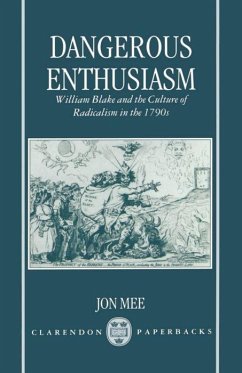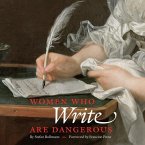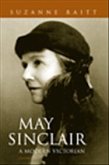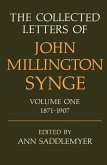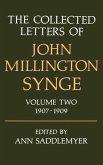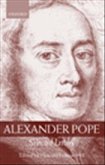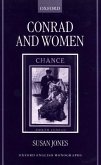William Blake's work presents a stern challenge to historical criticism. Jon Mee's new study meets that challenge by investigating contexts outside the domains of standard literary histories. He traces the distinctive rhetoric of the illuminated books to the French Revolution controversy of the 1790s and Blake's fusion of the diverse currents of radicalism abroad in that decade. Dangerous Enthusiasm presents a more comprehensively politicized picture of Blake than any previous study. It is supported by a wealth of original research which will be of interest to historians and literary critics alike. Blake emerges from these pages as a 'bricoleur' who fused the language of London's popular dissenting culture with the more sceptical radicalism of the Enlightenment. His prophetic books are shown to be less the expressions of isolated genius than the products of a complex response to the cultural politics of his contemporaries.
Dangerous Enthusiasm considers Blake's prophetic books written during the 1790s in the light of the French Revolution controversy raging at the time; his works are shown to be less the expressions of isolated genius than the products of a complex response to the cultural politics of his contemporaries. William Blake's work presents a stern challenge to historical criticism. Jon Mee's new study meets the challenge by investigating contexts outside the domains of standard literary histories. He traces the distinctive rhetoric of the illuminated books to the French Revolution controversy of the 1790s and Blake's fusion of the diverse currents of radicalism abroad in that decade. The study is supported by a wealth of original research which will be of interest to historians and literary critics alike. Blake emerges from these pages as a 'bricoleur' who fused the language of London's popular dissenting culture with the more sceptical radicalism of the Enlightenment. Dangerous Enthusiasm presents a more comprehensively politicized picture of Blake than any previous study.
Hinweis: Dieser Artikel kann nur an eine deutsche Lieferadresse ausgeliefert werden.
Dangerous Enthusiasm considers Blake's prophetic books written during the 1790s in the light of the French Revolution controversy raging at the time; his works are shown to be less the expressions of isolated genius than the products of a complex response to the cultural politics of his contemporaries. William Blake's work presents a stern challenge to historical criticism. Jon Mee's new study meets the challenge by investigating contexts outside the domains of standard literary histories. He traces the distinctive rhetoric of the illuminated books to the French Revolution controversy of the 1790s and Blake's fusion of the diverse currents of radicalism abroad in that decade. The study is supported by a wealth of original research which will be of interest to historians and literary critics alike. Blake emerges from these pages as a 'bricoleur' who fused the language of London's popular dissenting culture with the more sceptical radicalism of the Enlightenment. Dangerous Enthusiasm presents a more comprehensively politicized picture of Blake than any previous study.
Hinweis: Dieser Artikel kann nur an eine deutsche Lieferadresse ausgeliefert werden.

